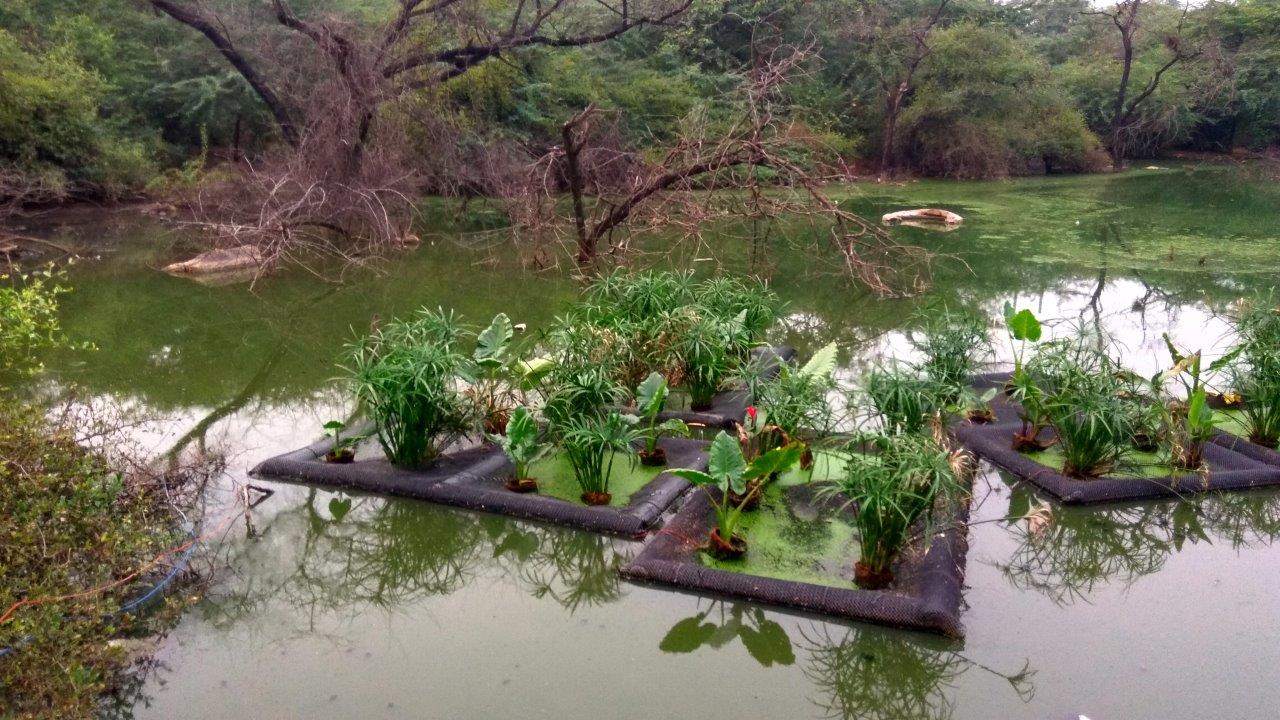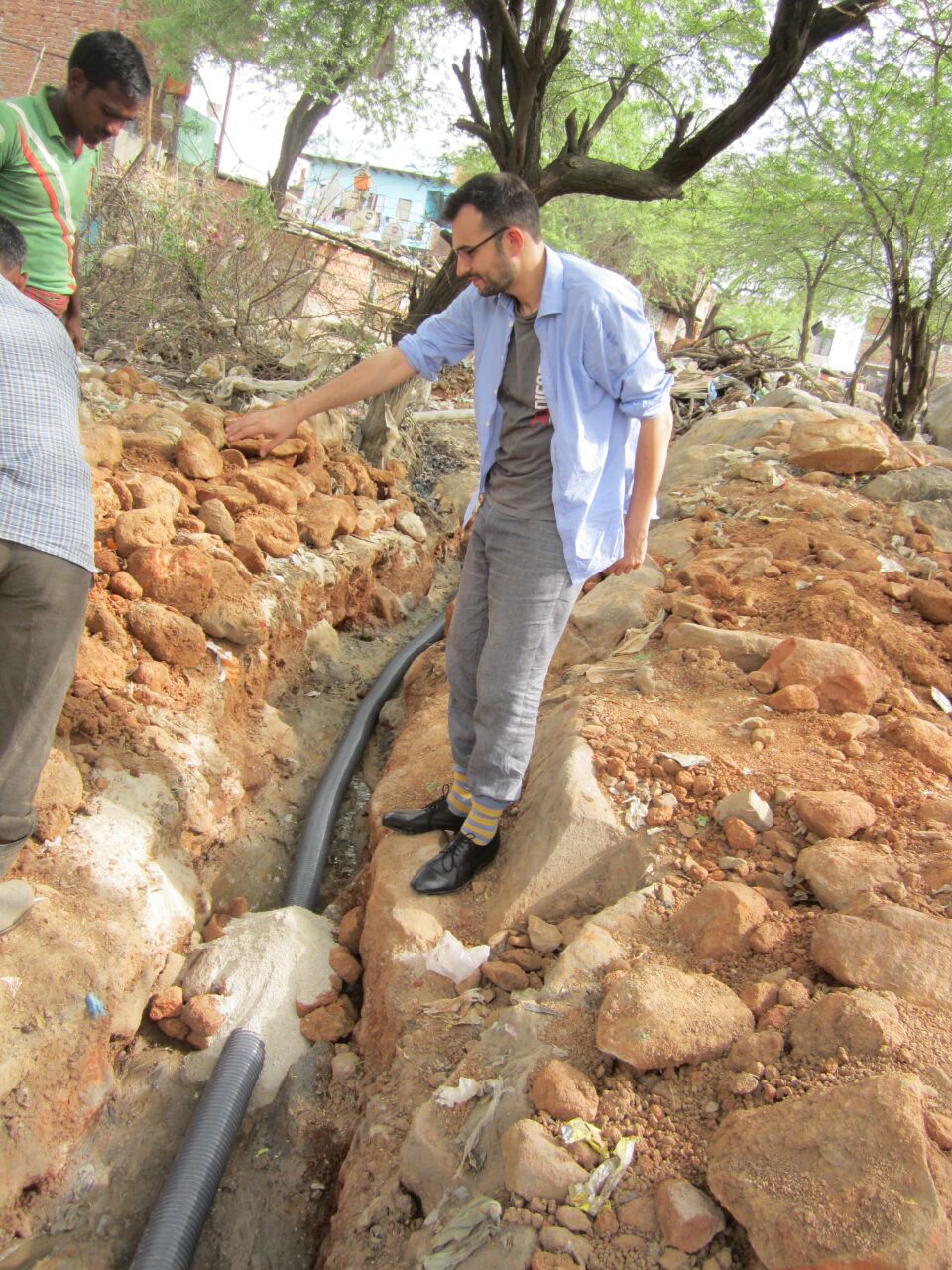Delhiites, Check out This Ecological Engineer’s Super Innovative, Natural Idea to Reduce Pollution in Water Bodies
Tarun Sebastian Nanda, a British Dutch Indian ecological engineer, will be conducting workshops in Delhi to train people in building floating wetlands: an eco-friendly, chemical free and low-maintenance method to make the water bodies pollutant-free.

Tarun Sebastian Nanda, a British Dutch Indian ecological engineer, will be conducting workshops in Delhi to train people in building floating wetlands: an eco-friendly, chemical free and low-maintenance method to make the water bodies pollutant-free.
Besides being the national capital, Delhi has also been the pollution capital of the country for long. Development has come at the cost of the environment and the air and water bodies in the city are choked with pollutants.
Tarun Sebastian Nanda, a British Dutch Indian ecological engineer, wants to do his bit to turn things around by trying to rejuvenate Delhi’s water bodies through his initiative ‘Adopt an Island’.

Floating wetlands in Vasanth Vihar, Delhi
Tarun has organised an event on Wednesday, November 16, at Antisocial, a social gathering platform at Hauz Khas in Delhi. At this event he will teach the participants to make floating wetlands, which are basically different aquatic plants placed on a buoyant mat built from drainage pipes and used soda bottles. When placed in water bodies, these wetlands purify water and sewage by absorbing significant levels of manganese, iron, aluminium and other contaminants through their roots and foliage, promote reduction in algae and improve the overall ecosystem function.
During the event, Tarun will put forward his idea to the participants, explain to them the science behind the concept and train them to make the floating wetlands. He will also announce the details of further workshops that he plans to conduct.
Tarun, who moved to India from England, has been working in the field of environmental engineering for over six years now. He has worked as a consultant on several projects related to floating wetlands as well as constructed wetlands. He also makes LED light fixtures from bamboo, cork and other natural materials to encourage the use of solar PV.
Tarun has been trying to get official permission to install floating wetlands in Delhi’s water bodies; however, all his efforts have been in vain.
“I have been trying for so long now. All that happens is a meeting is set up. Nothing happens further. I am starting to get a feeling that they don’t want this to happen,” says Tarun.
Frustrated with the tedious bureaucratic process and unresponsive officials, Tarun has now decided to go ahead with the initiative without official permission. The permission is truly an issue, as several NGOs that need government support to function properly, are reluctant to collaborate with Tarun on the project.
“It’s not their fault. They need to maintain a long-term collaboration with the government. Naturally, they wouldn’t want to get involved in something illegal,” says Tarun.
You may also like: Protected Area Update: A Go-To Guide for India’s Wildlife Sanctuaries and Wildlife National Parks
Tarun is hoping that his initiative won’t face official action by the government.
“So I don’t have the permission, but according to the constitution, Article 48A talks about protection and improvement and safeguarding of forests and wildlife. It says that the State shall endeavour to protect and improve the environment and to safeguard the forests and wildlife of the country.
Also, under the fundamental duties (Article 51-A) of a citizen, it says that it shall be the duty of every citizen of India – (g) to protect and improve the natural environment including forests, lakes, rivers and wildlife, and to have compassion for living creatures. So I am just doing my duty,” says Tarun.
Tarun envisages his project to be a community initiative.

“I only want to spread the idea and the concept. I’ll provide all the training that’s required and then people can take it forward from there. They should form groups, build floating wetlands on their own and install them in water bodies in their area. They should take responsibility for the little maintenance that will be required. It’s not difficult at all. The floating wetlands take less than a day to make and it’s also possible to make them off-site and simply carry them to where you want to place them,” says Tarun.
Solving the problem of polluted water bodies is tough but not impossible to solve, according to Tarun.
“It’s not easy solving this problem – not only does the solution have to be cheap but it has to be easy enough for residents to maintain themselves. It has to put up with the various abuses that people can throw at it, from theft to vandalism to dumping of garbage.”
When asked how he is planning to fund the project, Tarun says that people will have to pay the little sum that’s required to begin with.
“A square metre of floating wetlands is expected to cost Rs. 2,500, which I am hoping to cover by charging a training fee of Rs. 500 per person and also by collecting donations.”
Tarun is planning to conduct a series of workshops following his event in Delhi, where he will teach more people how to make the water purifying floating wetlands. Four to five people can get together to build one floating wetland together. Tarun hopes, as the workshops go on, the number of floating wetlands in the city will increase and more and more water bodies will be able to breathe freely again.
You may also like: How a Bunch of Students Are Convincing Villages Around Noida to Use Water Filters
To know more about Tarun Nanda’s initiative, visit the link to his Facebook event here, and also visit the Facebook page here.
Like this story? Or have something to share? Write to us: [email protected], or connect with us on Facebook and Twitter.
NEW: Click here to get positive news on WhatsApp!
If you found our stories insightful, informative, or even just enjoyable, we invite you to consider making a voluntary payment to support the work we do at The Better India. Your contribution helps us continue producing quality content that educates, inspires, and drives positive change.
Choose one of the payment options below for your contribution-
By paying for the stories you value, you directly contribute to sustaining our efforts focused on making a difference in the world. Together, let’s ensure that impactful stories continue to be told and shared, enriching lives and communities alike.
Thank you for your support. Here are some frequently asked questions you might find helpful to know why you are contributing?


This story made me
-
97
-
121
-
89
-
167













